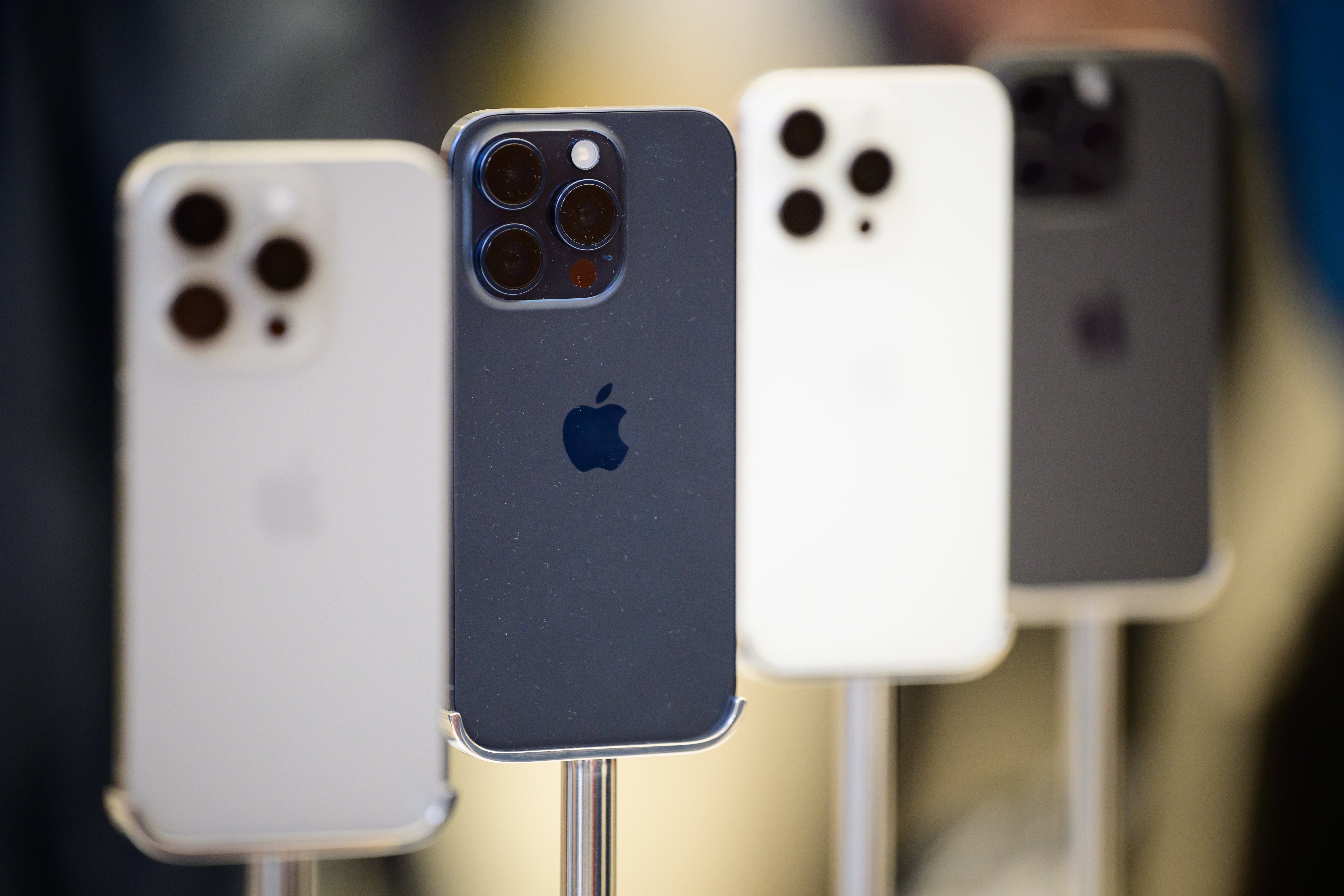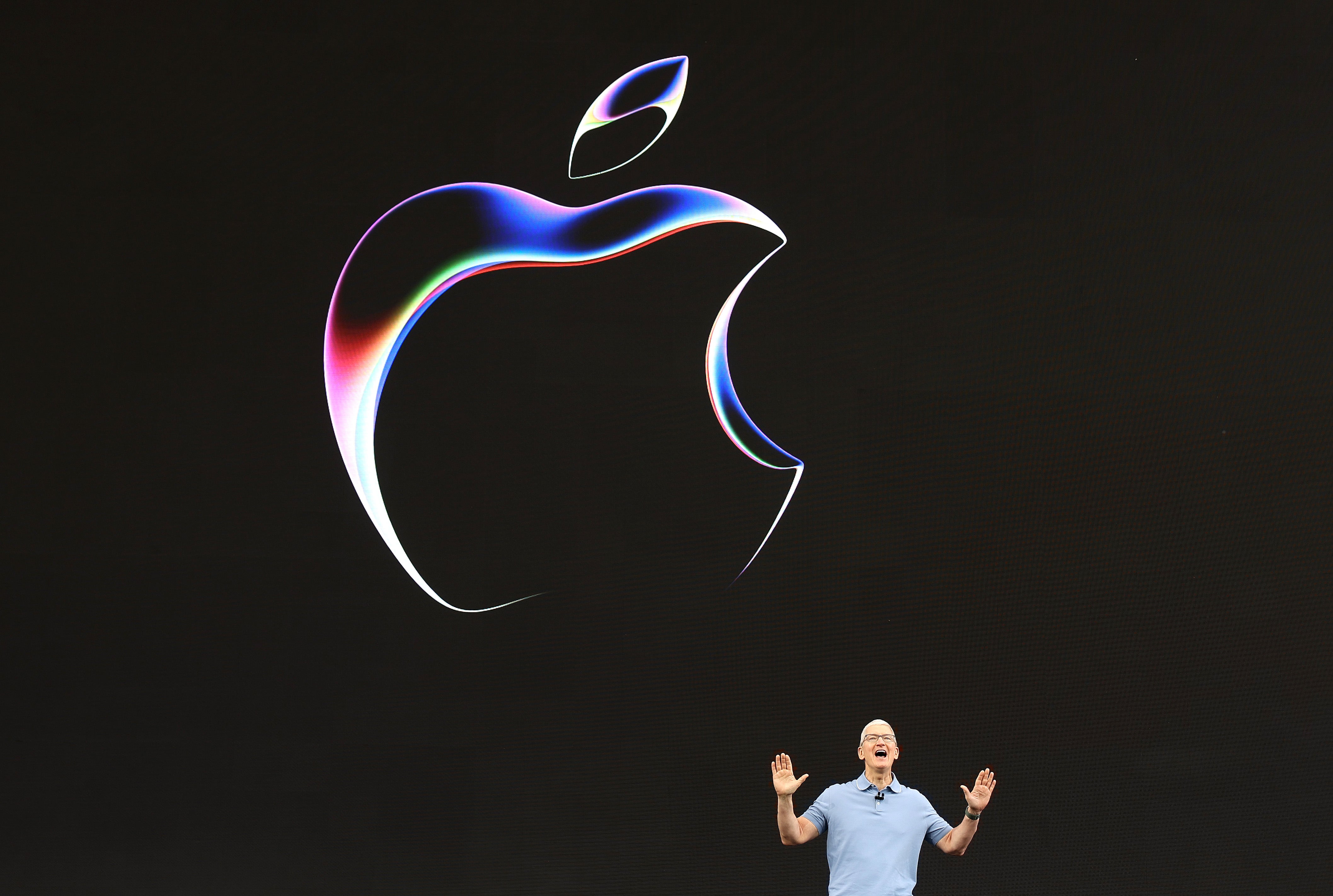Apple is about to reveal the AI iPhone. It could be their riskiest move yet
The tech giant is finally about to promote its AI vision, writes Andrew Griffin. But with people as likely to fear as embrace the advances being made, it has chosen a perilous moment to do so


The AI iPhone is finally about to arrive. On Monday, at 10am local pacific time, the tech giant’s executives will take to a stage at its campus in California and finally give an answer to a question the world has been asking for the last 18 months. It will finally open up on what it is going to do with artificial intelligence.
We have a pretty good idea of what that answer will be, from rumours, reports and gossip. It appears that Apple’s plan is to bring AI – which it might refer to as Apple Intelligence – to as many products and as much of its operating system as possible, infusing it across its technologies in subtle and not so subtle ways.
That will include new tools that allow devices to summarise large and complicated data, for instance – offering recaps of web pages and long message threads. Siri will be improved so that it is better to talk to and can do more with those conversations, such as operating parts of the phone. It might also include potentially more controversial plans, such as tie-ups with OpenAI and new features that require data to be sent off the device to servers elsewhere.
The actual desire among normal consumers for these AI features still remains largely untested. ChatGPT might be the fastest-growing app in history, but it was free, and many people may have simply been using it for fun. Apple is in the inconvenient situation of actually having to sell its products to customers, and so has the awkward task of being a major test of whether people actually want them.
It will be doing so at a tough time for public perception of AI. Some 18 months ago, when ChatGPT was still fresh, the conversation about AI was all excitement – even the fears that were discussed were largely about it being simply too powerful and good, and destroying or incapacitating humanity as a result. Now, the long-promised revolution in society is yet to arrive, and describing something as being AI-powered is as likely to give the sense that it is a tawdry and potentially unethical knockoff as it being a sci-fi thrill.
Apple began its current rush to infuse everything with AI in that latter market, when investors were clamouring for it to catch up and users were wondering whether they were missing out by not having Google phones. Now its products will actually arrive into a world of suspicion and cynicism, with people as likely to think that AI is going to hurt as help them.

Apple has some very public and largely laudable principles that may hold it back in the field of AI. The technology is really large-scale data analysis tool, and is only as good as the information it has, but Apple’s very public belief that privacy is a human right means that it minimises data collection. Its commitment to security means that it is likely to want to constrain the access of any automated system. And its hardcore control of its own brand means that it will want to avoid any systems that are likely to generate offensive or even politically sensitive outputs, as AI often does.
Early on, its commitment to corporate secrecy also meant that AI researchers – many of whom come from a more academic context and were used to hearing their work in public – were resistant to working for Apple, and it has been forced to open up a little in response.
But perhaps the most notable problem it has is that it is really not all that interested in technology for its own sake at all. The company is instead interested, from a marketing perspective, in user experience: what a product does, not how it does it. That has meant that the AI breakthroughs that it does have – and there are many – have usually been left behind the scenes.
Its first devoted AI hardware arrived in the iPhone 8 in 2017, for instance. And for nearly a decade the iPhone has offered what Apple then called “proactive” suggestions, so that the iPhone could for instance guess what app its owners is likely to want to use next and make it available to click on. But back then – in the now unimaginable period before Dall-E and ChatGPT – AI was something between scary and banal, and Apple didn’t shout about it.
Even at last year’s Worldwide Developers Conference (WWDC), with AI hype through Silicon Valley, Apple pointedly didn’t say artificial intelligence once. Instead, it kept that old focus: using the actually much more specific and useful term machine learning, and describing the features it brought, such as improved autocorrect, rather than the technology underpinning them.
None of which is to say that it hasn’t been late to incorporate some AI features. It appears to have underestimated the possibilities of generative artificial intelligence, and seems to have admitted as much by scrambling to add it to its products ready for this year. It is rushing to catch up.
Apple has not typically been first into product categories, but instead aims to be best. It didn’t make the first smartphone, smartwatch or even virtual reality headset, but has become more or less synonymous with them in the time since. It has done much the same with AI – a strategy that might have led to questions from commentators, but has also allowed Apple to let other people go ahead and make mistakes.
The wisdom of that has been proven out in the last month alone. Google’s AI summaries were found to be encouraging people to eat rocks. OpenAI is in trouble with Scarlett Johansson over using a voice that sounds uncannily like hers. Microsoft has faced backlash and official investigations over a feature called Recall that aims to take constant snapshots of everything you do on your computer so that it can be used by your personal AI.
Even with its relatively cautious approach, Apple hasn’t been free from making mistakes of its own. Last month, it announced its new iPad Pro with an ad called “Crush”, which showed creative tools such as musical instruments being squished in a hydraulic press, and coming out in the super-slim form of the iPad. It was intended to show that the tablet packs everything you need to make a song into a tiny form – but all people saw was a piano being pulverised, at a time when artists of all kinds already feel like the technology industry is out to make them obsolete.
The ad didn’t even have anything explicitly to do with AI, but all of the conversations about it did. Apple quickly apologised, and pulled it. But it may have been the first taste for Apple of the dangers of AI – and the pressure it is under to avoid them.
Join our commenting forum
Join thought-provoking conversations, follow other Independent readers and see their replies
Comments
Bookmark popover
Removed from bookmarks